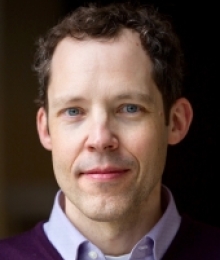S. Rethinking Police Governance
Course Information
- Course Number
- L9291
- Curriculum Level
- Upperclass
- Areas of Study
- Administrative Law and Public Policy, Criminal Law and Procedure, Human Rights, Interdisciplinary Legal Studies, Legal History and Law and Philosophy, Racial, Economic, and Social Justice
- Type
- Seminar
- Additional Attributes
- New Course
Section 001 Information
Instructor
 Malcolm B. Thorburn
Nathaniel Fensterstock Visiting Professor of Law
Malcolm B. Thorburn
Nathaniel Fensterstock Visiting Professor of Law
Section Description
In this course, we will take a step back from the constitutional jurisprudence of policing governing arrest powers, searches, stop-and-frisk, racial profiling, excessive force, surveillance to examine the larger institution setting of policing and, in particular, questions of police governance. We will examine historical, comparative, sociological, and philosophical writing on these topics to try to gain new perspectives on the problems of police governance in America today. We begin by considering some of the more radical proposals to abolish or defund the police. In studying these challenges, we will take up some foundational normative and conceptual questions, including what it is we mean by abolition – and whether some calls for abolition can be re-cast (at least in part) as calls for radical change in police governance. Should some traditional police tasks not be carried out by police, or at all? Who should make decisions about the use of police power, and how should they make those decisions? In day two, we examine some of the historical and contemporary realities of policing in America: the long historical connection between policing and slavery in some parts of the United States; the radical decentralization of police governance; the high rates of violence in police interactions; the history of racial disparities in many police practices, the radical discretion granted to front-line officers. In day three, we put American policing in perspective by comparing some different policing practices, governance structures, and histories we find in several other industrialized democracies. In days four and five, we consider the prospects for two broad schools of policing reform in the United States today. The first school, which we take up in day four, focuses on changes to the governance of policing: greater community involvement, greater civilian oversight, democratization of the police workplace, etc. The second school of thought, which we will examine in day five, focuses on substantive principles of just policing: general principles of proportionality, substantive interest balancing, etc. Class discussion will take place in various formats over the course of the week, including Socratic discussion, role play, and debate. Students must submit a short response piece in advance of each class.
- School Year & Semester
- January 2025
- Location
- WCW 304
- Schedule
-
Class meets on
- Monday
- Tuesday
- Wednesday
- Thursday
- Friday
- Points
- 1
- Method of Evaluation
- Paper
- J.D Writing Credit?
- No
Learning Outcomes
- Primary
-
- At the end of the course, students will have acquired understanding of and/or facility in a specific body of law, including major policy concerns
- At the end of the course, students will have acquired understanding of and/or facility in doctrinal analysis, including close reading of cases and precedents, and application to facts
- At the end of the course, students will have acquired understanding of and/or facility in statutory and regulatory analysis, including close reading of statutes and regulations, and application to facts
- At the end of the course, students will have acquired understanding of and/or facility in jurisprudential considerations in legal analysis
- At the end of the course, students will have acquired understanding of and/or facility in the historical development of law and legal institutions
- At the end of the course, students will have acquired understanding of and/or facility in comparative law analysis of legal institutions and the law
- At the end of the course, students will have acquired understanding of and/or facility in use of other disciplines in the analysis of legal problems and institutions, e.g., philosophy; economics,other social sciences; and cultural studies
- At the end of the course, students will have acquired understanding of and/or facility in various lawyering skills, for example, oral advocacy, legal writing and drafting, legal research, negotiation, and client communication
Course Limitations
- Instructor Pre-requisites
- None
- Instructor Co-Requisites
- None
- Requires Permission
- No
- Recommended Courses
- Criminal law, criminal procedure
- Other Limitations
- None